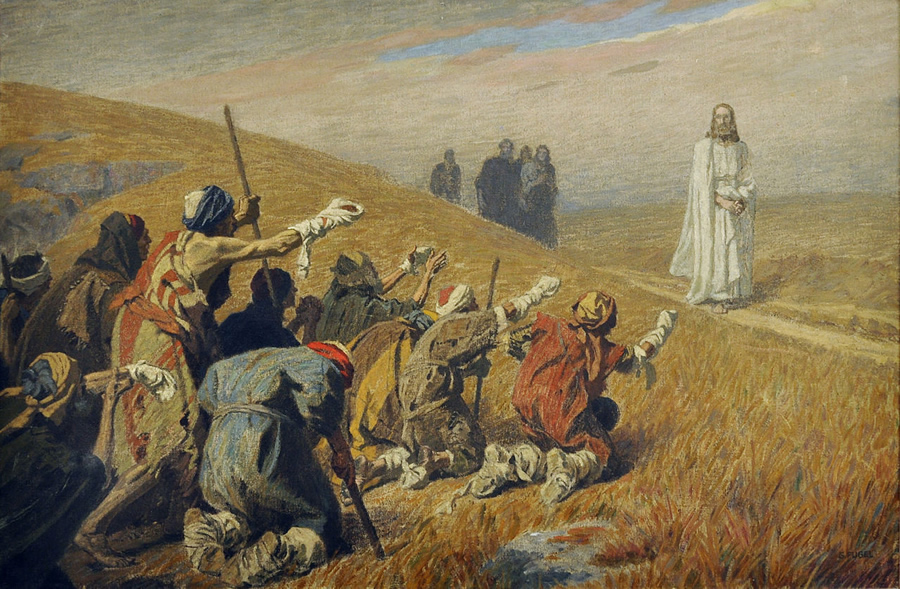
Faith: a Treasure to Be Shared
10-13-2019Pastoral ReflectionsRev. Brian F. ManningThe ancient Jewish laws regarding lepers were indeed scary. Although a leper was an outcast beggar, wearing rags, and with terrible skin lesions, the law required that lepers look even worse and shout every time they came near someone by yelling “Unclean! Unclean!” In the Gospel story, the disciples and followers of Jesus must have hit a collective feverish pitch when the ten lepers dared to approach Jesus. Worse than all this “horror” was one of the lepers was a Samaritan, a heretic—to use a term that is thrown around too easily today. Notice that, despite the reaction of the people, Jesus did have pity of on them. He then told them to go to the temple and show themselves to the priests, whose role was to formally declare who was cured of this stigmatizing disease. In the story they leave and make their way, and at some point they are cured. Yet only one of the ten—who else but the Samaritan?—returns to offer thanks. How do you think Jesus felt at this point? Despite this issue, the theme of the Gospel and the first two readings is about faith.
The three readings offer us different perspectives or points of view to discern and learn about faith. The Old Testament launches the theme with a miracle. However, Naaman follows up with an act of gratitude, which results in faith. In the Gospel, in reverse so to speak, the Samaritan’s cure follows faith, which in turn prompts gratitude and praise. Notice how these two particular readings focus on the faith of the receiver of gifts. These readings make it clear that there is no such thing as quiet or anonymous faith. The gift of faith is meant to be seen by others, not bound and locked away. The readings tell us clearly that faith is a treasure to be shared and a reason for joy and hope.
In contrast to the Old Testament and Gospel passages, the reading from 2 Timothy does not focus on the receiver of gifts, but instead on the giver. Paul intends for us to perceive and identify the faithfulness of Christ. Paul says in the letter that so faithful is Christ, that there is nothing we can do, no infidelity on our part, which will cause him to change his faithful stand toward us. Paul writes this even as he, Paul, is in chains and in prison. Paul tells us that our faith in Christ’s faithfulness will result in our ultimate salvation. Bear in mind that all of the today’s readings proclaim that God’s faithful love will issue in power to bring salvation to all the earth.
Bear in mind that in biblical times, those afflicted with leprosy, which was any skin disease, were banished from both the social and the liturgical life of the community. Thus, any formally recognized “curing” of leprosy was grounds for double jubilation. Only the Samaritan knew how to jubilate. In fact, it is quite proper to call the Samaritan’s response to his healing “eucharistic.”
We learn by today’s scripture that authentic thanksgiving demands three elements: the giver, the receiver, and an assembly. We learn in the scriptures this weekend that it was not okay to slip quietly away in order to offer a benefactor private thanks. The gratitude triggered by the act of someone’s generosity required the receiver to reveal as publicly as possible the graciousness of the giver. It is ever so true that authentic gratitude always finds expression in thank-filled praise. This is one of the many, many reasons why we gather each weekend to celebrate the Holy Mass, which is also called “the Eucharist,” that is from the Greek “to give thanks well.”
Father Brian
BACK TO LIST